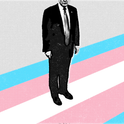My husband, Julian Assange, is now in his fifth year of imprisonment without conviction in HMP Belmarsh. The documentary film Ithaka: The Fight to Free Assange, broadcast recently on ITV, follows Julian’s father, John, and me during the first two years of Julian’s incarceration and extradition hearings.
There are glimpses of Julian in the film; he can be heard singing a lullaby over the phone at one point. Our youngest, who recently turned four, was just weeks old when Julian was arrested. Ithaka follows our family as we attempt to free Julian during the pandemic. At first I found it difficult to watch because we look so vulnerable. But Ithaka has since become a source of optimism for me.
In cases involving political prisoners, injustice is often allowed to continue for the simple reason that it is the path of least resistance: to end it would be to acknowledge fallibility, and consequently reduce public confidence in the criminal justice system. Or, as Lord Denning more crudely expressed in 1988 (I paraphrase): “We wouldn’t have all these campaigns to get the Birmingham Six released if they’d been hanged. They’d have been forgotten, and the whole community would have been satisfied.”
The reason for my optimism is the fact that Julian, though still buried in the bowels of Belmarsh, and facing a 175-year sentence if extradited to the US, is all but forgotten. The system that has enabled his imprisonment, on the other hand, is under mounting challenge.
The 2022 Booker Prize-winning author Shehan Karunatilaka recently remarked: “Julian Assange, divisive figure that he may be—he is a hero to many writers in South Asia because freedom of speech is not something we take for granted… Journalism has been criminalised in our parts of the world and so we are looking to the west to see how this case is prosecuted and how it ends up.”
There is little doubt that Karunatilaka’s description is representative of the prism through which most of the world views the case against my husband. And that concern does not just exist outside the west.
At Unesco’s World Press Freedom Day event this year, held at the UN in New York, the secretary general of Amnesty International, Agnès Callamard, said: “It is not just what is happening in Iran or in Russia that should worry us, it is also what is happening here. Who is imprisoning Julian Assange? Sadly, the playbook of autocracy, the playbook of control over conscience, or control over speech, has been well learned by our so-called democratic leaders.” The president of the Committee to Protect Journalists, Jodie Ginsberg, noted that the US case against Julian “if brought to fruition could effectively criminalise journalism anywhere, for journalists everywhere”.
Injustice is often allowed to continue for the simple reason that it is the path of least resistance
Russia’s trumped-up “espionage” charges against Wall Street Journal reporter Evan Gershkovich for his newsgathering activities mirror those brought against Julian for his newsgathering and publishing. The last US reporter to be prosecuted by Russia for “espionage” was Nicholas Daniloff in 1986. The playbook did not originate in America, but America has sunk to Soviet standards and revived it. It won’t stop there. That is why the Assange case is the greatest threat to press freedom worldwide.
Julian’s US accusers use “espionage” as shorthand for “journalism”. They do not allege that Julian was acting on behalf of—or colluding with—any foreign power. The WikiLeaks publications expose the killing of tens of thousands of civilians in Iraq and Afghanistan; document evidence of torture and assassination squads; and reveal at least one potential war crime involving the slaughter of Reuters employees in Baghdad. The facts of the case are well-known and uncontested: the source, Chelsea Manning, was a US army whistleblower who acted on her conscience. She was sentenced to 35 years. The sentence was commuted by Barack Obama on his last day in office.
Julian acted for the public’s benefit, and he is accused—of conspiracy to publish, and of receiving, obtaining, possessing and communicating “national defence” information—under a statute from 1917. The classification system was only invented 35 years after that law was written. There is no US “Official Secrets Act”. “National defence” information is whatever the US government says it is.
♦♦♦
The mood in Julian’s home country has changed decisively since he was first arrested. An overwhelming majority of Australians—one online poll by the broadcaster ABC showed 89 per cent—want Julian to be freed. The prime minister, Anthony Albanese, has been joined by the leader of the opposition in saying that “enough is enough”. Public opinion in this critical part of the anglosphere cannot be ignored.
So back to Karunatilaka’s point: journalists all over the world are looking to the west to see whether press freedom is vindicated in this case and Julian is released. It is more than public confidence in the UK justice system that hangs in the balance.













